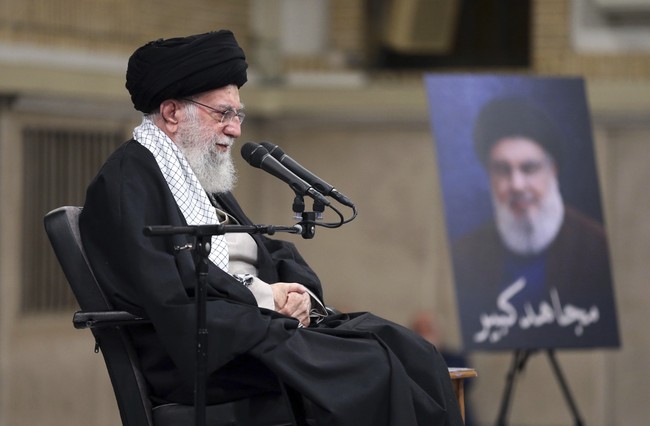President Donald Trump’s approval rating has risen to 53%, according to a new poll conducted by J.L. Partners in collaboration with the Daily Mail, even after widespread criticism of his administration’s recent announcement of sweeping new tariffs on imports.
The survey, which polled 1,000 registered voters between March 31 and April 3, was conducted following Trump’s announcement that the United States would impose a 10% universal tariff on goods entering the country.
Despite backlash from Democrats, some establishment Republicans, and financial analysts, the poll indicates that support for the president and his trade agenda is growing across multiple demographics.
Elon Musk Called This Financial News ‘Terrifying’
Compared to the previous week’s poll, Trump’s approval rating increased by four points, up from 49%.
The Daily Mail described the bump as “surprising” given recent market volatility and widespread media criticism in the days following the policy rollout.
Support for Trump surged among voters aged 18 to 29, with his favorability increasing by 13 points since March 7.
The president’s gains within this group follow a notable shift during the 2024 election cycle, in which young voters trended toward Trump after previously favoring Joe Biden in 2020.
FREE Concealed Carry Gun Laws & Reciprocity Map
The poll also recorded a six-point rise in support for Trump among Democrats and independents.
Among Black voters, Trump’s favorability rating jumped 17 points compared to the previous survey, indicating broader appeal across traditionally Democrat-leaning voter blocs.
On the policy itself, respondents expressed more support than opposition to the 10% baseline tariff plan.
Thirty-six percent of respondents approved of the policy, while 28% said they were opposed. Another 36% were undecided.
When asked about the possibility of raising tariffs across the board, 39% of voters expressed support, while 37% opposed such a move.
Twenty-four percent remained unsure.
The poll also found growing support for targeted tariffs on imports from China and the European Union, with voters particularly backing restrictions in sectors like steel, iron, aircraft, and precious metals.
Economists aligned with the Trump administration have suggested that the tariff increases are likely to be temporary and designed to pressure other countries into renegotiating trade terms with the United States.
Over the weekend, Taiwan announced plans to remove all tariffs and trade barriers on goods entering from the U.S. In addition, the island nation committed to investing $65 billion into three semiconductor manufacturing plants in Arizona.
🚨 #BREAKING: Taiwan has agreed to drop ALL tariffs on the United States, joining India, Israel, Vietnam, and Cambodia, who also intend to zero out their tariffs
Over *50* countries have called to negotiate with Trump so far.
WINNING! 🇺🇸🔥 pic.twitter.com/eJCkc9A2aR
— Nick Sortor (@nicksortor) April 6, 2025
Semiconductors are currently exempt from the tariff policy, a move that protects one of Taiwan’s largest exports.
As of 2025, Taiwan is responsible for 60% of global semiconductor production and nearly 90% of the most advanced chips.
Vietnam has also initiated discussions with Washington on a possible zero-tariff trade arrangement. India, Israel, and several smaller economies have signaled their willingness to pursue similar agreements.
In the United Kingdom, Prime Minister Keir Starmer is currently working on securing a new trade deal with the U.S., following multiple stalled attempts in the post-Brexit era.
Starmer, addressing his country’s economic direction, acknowledged that Trump’s tariff policy is “understandable” and is expected to publicly declare that “globalism has failed” in an upcoming address.
“Globalisation as we’ve known it for the last number of decades has ended”
Chief Secretary to the Treasury Darren Jones says the UK must be “strong and resilient” and that the government plans to invest in “the domestic economy” like the NHS#BBCLauraK https://t.co/49MSD0PIQI pic.twitter.com/gDzaWnyxng
— BBC Politics (@BBCPolitics) April 6, 2025
The next phase of the tariff rollout will take place on April 9, targeting countries identified as long-term violators of trade reciprocity with the U.S. The Trump administration has indicated that additional enforcement actions may follow if talks do not result in balanced trade reforms.
American Made Patriotic Apparel – Save 15% with Promo Code MERICA
Read the full article here


![Trump’s Approval Soars After Tariff Plan… Countries Running to Negotiate [WATCH] Trump’s Approval Soars After Tariff Plan… Countries Running to Negotiate [WATCH]](https://www.lifezette.com/wp-content/uploads/2024/11/2024.11.27-01.37-lifezette-6747208c54f7f.jpg)




![Ilhan Omar Denies Dems Celebrate Political Violence After Kirk Assassination [WATCH] Ilhan Omar Denies Dems Celebrate Political Violence After Kirk Assassination [WATCH]](https://www.rvmnews.com/wp-content/uploads/2025/02/2025.02.24-11.01-rvmnews-67bc51a270183.jpg)




